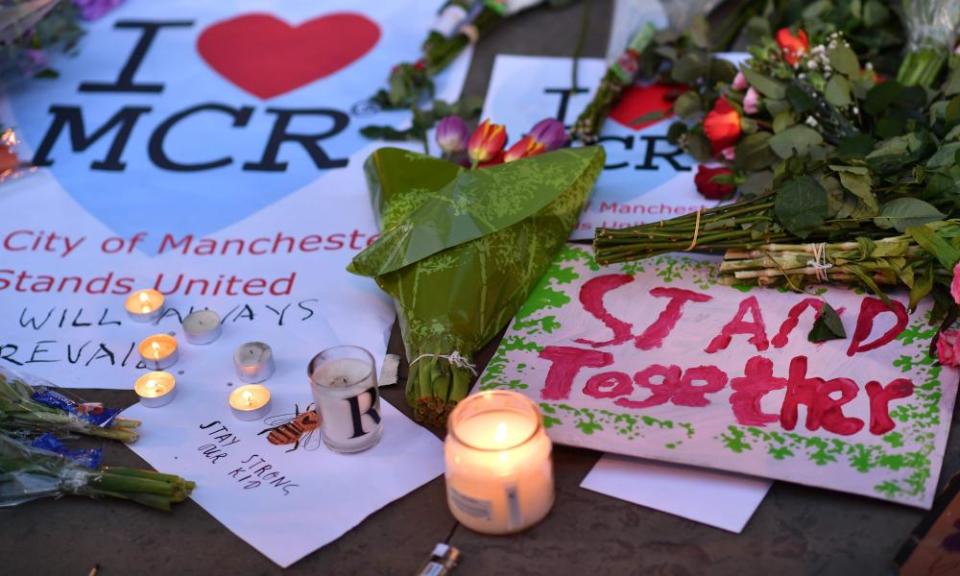Two Manchester Arena bombing victims could have been saved, inquiry hears

Firefighters did not arrive at Manchester Arena until two hours after the suicide bombing, only one paramedic entered the blast scene in the first 40 minutes, and Greater Manchester police (GMP) did not declare a major incident until the following day, the inquiry into the terror attack has heard.
The Manchester Arena inquiry, which resumed on Monday, moved to examine the response of the emergency services to the tragedy.
The inquiry heard evidence about the deaths of two of the victims, John Atkinson, 28, and Saffie-Rose Roussos – at age eight, the youngest to die in the attack.
“Most of those who died suffered injuries in the bombing that were, on the expert evidence, unsurvivable even with current advanced medical treatment,” said the counsel to the inquiry, Paul Greaney QC. But where Atkinson and Roussos were concerned, Greaney said: “A different response may have led to a different outcome.”
Atkinson, 28, who later died, was evacuated from the arena’s foyer on a cardboard advertising hoarding 45 minutes after the explosion. He was then moved to an area near a station entrance where he remained for a further 24 minutes before chest compressions commenced at 23.47pm and he was taken away in an ambulance.
A report commissioned by the family of Roussos claims she might have survived the bombing if she had received better first aid. Roussos died after excessive blood loss, but the report states her injuries “did not reach a threshold where they would be considered incompatible with life”.
The inquiry, which began last September, was due to resume on 12 January but was delayed due to the coronavirus pandemic. On resuming Monday, Greaney said: “We will explore whether the emergency response really worked that night and, if it did not, whether that failure made any contribution to the extent of the dreadful loss of life that occurred.” He noted that “some of what we have to say will be distressing”.
Suicide bomber Salman Abedi, 22, exploded his homemade rucksack bomb in the foyer of the arena shortly after an Ariana Grande concert at 10.31pm on 22 May 2017. Twenty-two people were killed in the blast which also injured hundreds.
Greaney said “it did not take long” for concerns to emerge about the emergency services’ response. Audio recordings taken from the body cameras of police officers in attendance were played before the inquiry, with one heard to say: “We need paramedics like fucking yesterday”.
Greaney said it was important to acknowledge the immense pressure facing members of the emergency services that night. “Our investigations must not be used to vilify those who did their best on the night,” he said. “That failure was, in the opinion of the experts, of command, not individual responders.”
The inquiry heard that while six North West ambulance service (NWAS) paramedics were at Manchester Victoria station, adjacent to the Arena, within 30 minutes of the blast, and within 40 minutes “at least” eight ambulances had arrived, only one NWAS paramedic had actually entered the foyer of the arena within the first 40 minutes.
Firefighters had assembled at a fire station three miles from the arena but did not attend the scene until two hours and six minutes after the attack. “Why that is so is plainly something that will need to be closely examined during the evidence,” said Greaney.
The hearing continues.

 Yahoo Finance
Yahoo Finance 